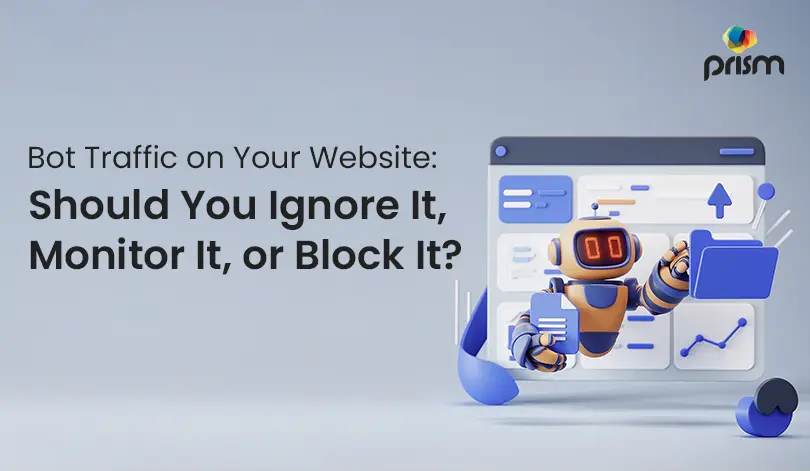

Redefining Social Media: How Blockchain Changes Everything

The Centralization Problem
Scale and Influence:
A few major players dominate the social media landscape. This concentration has led to a disproportionate amount of influence in the hands of a select few.
Data Control:
Centralized platforms store all user information on their servers. This means they have almost unrestricted access to a treasure trove of user data, from personal preferences to intimate conversations.
Monetization and Profit:
The primary revenue model for these platforms is advertising. Users, in essence, become the product, with their data being sold to the highest bidder.
Privacy and Security Concerns
The digital age has brought with it a myriad of privacy concerns. Centralized social media platforms, with their vast databases of user information, are prime targets for hackers. Moreover, there's the ever-present risk of misuse of data by the platforms themselves.
Data Breaches:
Time and again, major platforms have fallen victim to data breaches, compromising the personal information of millions of users.
Surveillance and Tracking:
Users are constantly tracked, with their online behaviors meticulously analyzed to serve targeted ads, often without explicit consent.
Power Consolidation
The essence of democracy is the distribution of power. However, in the realm of social media:
Algorithmic Control:
A few entities decide what content gets visibility, often based on opaque algorithms that prioritize ad revenue over user experience.
Censorship:
Centralized control means these platforms can arbitrarily decide what content to promote or suppress, leading to potential biases and censorship.
Commodification of User Data
In the world of centralized social media, users are less of consumers and more of commodities.
Targeted Advertising:
Platforms like Facebook monetize by selling users' personal data to advertisers. Ever wondered why after browsing a product on Amazon, its ad pops up on your social feed? That's data commodification in action.
Manipulation:
With access to vast amounts of data, platforms can curate content feeds to manipulate user emotions and behaviors, often to keep them engaged and scrolling.
As we delve deeper into the world of decentralized social media in the sections to follow, we'll explore how blockchain technology offers solutions to these pressing issues, promising a future where users regain control over their digital identities.
Definition and Basic Understanding
Blockchain Social Media refers to networking platforms built upon blockchain protocols. At its core, blockchain is a decentralized ledger of transactions, ensuring transparency, security, and immutability. When applied to social media, it transforms the way data is stored, managed, and controlled.
Decentralized Data Storage:
Unlike traditional platforms where all data is stored on centralized servers, blockchain social media stores information across a network of computers, known as nodes. This means no single entity has complete control over the entirety of the data.
Smart Contracts and DApps:
Blockchain social media often utilizes smart contracts and decentralized applications (DApps) to automate and facilitate interactions on the platform. For instance, Ethereum, Steem, and Stellar are blockchain protocols that support the development of social media DApps.
A Check on User Commodification
In the world of blockchain:
Users Aren't Products:
Decentralized platforms often have alternative monetization strategies that don't rely on selling user data to advertisers.
Direct Rewards:
Platforms like Steemit reward users for their content, ensuring that creators are directly compensated for their contributions.
Enhanced Privacy and Freedom of Expression
Blockchain's decentralized nature offers:
Greater Privacy:
With data distributed and encrypted, users enjoy a level of privacy that centralized platforms can't match.
Freedom from Censorship:
Without a central authority, it's harder to suppress or manipulate content, ensuring a more democratic and open platform.
Opportunities for Crowdfunding and Monetization
Beyond just social interactions, blockchain platforms offer:
Crowdfunding Capabilities:
Platforms enable users to run crowdfunding campaigns, similar to token sales, leveraging the community's power.
Direct Transactions:
Many platforms facilitate user-to-user financial transactions using native cryptocurrency, opening up new avenues for commerce and interaction.
Many platforms facilitate user-to-user financial transactions using native cryptocurrency, opening up new avenues for commerce and interaction.
Peepeth: Decentralized Microblogging Platform
Built on the Ethereum blockchain, Peepeth offers a space for microblogging, akin to Twitter. It champions user privacy, resisting the advertising-driven models of traditional platforms. Key features include blockchain-stored accounts and posts, transparency, and the ability to accept cryptocurrency tips.
Diaspora: User-Controlled, Decentralized Platform
Diaspora operates on a unique "pod" system, allowing users to choose where their data resides. It emphasizes user freedom, from identity to data sharing, and offers features like hashtag following, similar to mainstream platforms.
Minds: Zero-Censorship Network with Full Data Ownership
Minds stands out for its commitment to free speech and data ownership. It's fully open-source, and its features rival those of platforms like Facebook and Twitter. With over 2 million users, it's a testament to the demand for decentralized platforms.
Reddit's Community Points System
Reddit introduced a community points system, allowing users to earn rewards for quality content. These points, based on the Ethereum blockchain, can be traded, spent, or held.
Instagram's Support for NFTs
With the rise of NFTs (Non-Fungible Tokens), Instagram is exploring ways to support and integrate them, allowing creators to tokenize and sell their digital art directly on the platform.
The integration of blockchain by these mainstream platforms indicates a broader acceptance of the technology and its potential to reshape the social media landscape.
Potential for Misuse on Uncensored Platforms
The very feature that makes blockchain platforms attractive, their commitment to free speech and lack of censorship, can also be a double-edged sword. Without checks and balances, there's potential for the spread of misinformation, hate speech, or illicit content.
Platforms like Minds and Peepeth, while championing free speech, must grapple with the challenge of ensuring their platforms aren't misused.
Balance Between Freedom and Regulation
The decentralized nature of blockchain platforms makes them inherently resistant to regulation. While this can be seen as a strength, it also poses challenges.
Without some form of oversight, there's potential for these platforms to become havens for illegal activities.
Striking the right balance between user freedom and necessary regulation is a challenge that these platforms must navigate.
Ongoing Shift Towards Decentralized Platforms
As concerns over privacy, data misuse, and centralization grow, there's a palpable shift towards decentralized platforms. Users are increasingly seeking spaces where their voices are heard, their data is protected, and their contributions are valued.
Mainstream platforms like Twitter and Reddit recognizing and exploring the potential of blockchain is a testament to this shift.
In essence, while challenges remain, the future of social media seems to be leaning towards decentralization. Blockchain, with its promise of transparency, security, and user empowerment, is poised to play a pivotal role in this transformation.
Conclusion
In the ever-evolving landscape of social media, having a partner that understands the intricacies of the digital realm is invaluable. Prism Digital stands at the forefront of this digital revolution, offering unparalleled SMM services tailored to your unique needs.
As a leading social media marketing agency in Dubai, we recognize the power of a well-crafted social media strategy. Our team of experts delves deep into understanding your brand, ensuring that your voice resonates across platforms. With our social media management expertise, we don't just increase your online presence; we transform it into a dynamic space of engagement, driving both reach and customers.
In a world where every brand is vying for attention, our SMM services ensure you don't just blend in but stand out. Whether it's leveraging the latest trends, crafting compelling content, or harnessing the power of analytics, Prism Digital is your partner in navigating the digital maze.
Ready to elevate your brand's digital footprint? Contact us today and let's craft a social media strategy that propels you to new heights.

About The Author: Lovetto Nazareth
Lovetto Nazareth is a digital marketing consultant and agency owner of Prism Digital. He has been in the advertising and digital marketing business for the last 2 decades and has managed thousands of campaigns and generated millions of dollars of new leads. He is an avid adventure sports enthusiast and a singer-songwriter. Follow him on social media on @Lovetto Nazareth
Post Your Comment!
Recent Blogs

Does AI Content Work for Search Engines? What Google Actually Rewards in 2026

Bot Traffic on Your Website: Should You Ignore It, Monitor It, or Block It?

GEO, AEO, LLMO vs SEO: New Strategy or Just Old Wine in a New AI Bottle?

Orphan Pages in SEO: Hidden Technical Issues and How to Fix Them

Support
Phone: +971 55 850 0095
Email: sales@prism-me.com
Location: Prism Digital Marketing Management LLC Latifa Tower, Office No. 604 - West Wing World Trade Center 1, Sheikh Zayed Road Dubai, UAE
Subscribe
Join our newsletter to stay up to date on features and releases.
By subscribing you agree to our Privacy Policy and provide consent to receive updates from our company.


SocialX: Community-Driven Platform for Content Sharing
SocialX operates similarly to platforms like Facebook but in a decentralized manner. Users can post photos and videos and earn rewards in the form of the platform's cryptocurrency, SOCX.